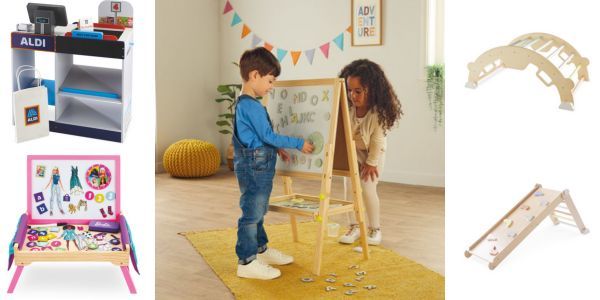

Written by Paola for her blog, The Elephant Mum.
Breastfeeding can be stressful, draining, time-consuming, but nevertheless it’s proven to be beneficial for mother and baby. Great for skin-to-skin contact and developing the relationship with your baby; essential for your child to build a functioning immune system; good to protect the baby from allergies, sicknesses, and help her development. The theory sounds great, practice is much less pleasant.
I want to talk about my own experience as a first-time mother almost five years ago. Exclusive breastfeeding was strongly encouraged by the society I was living in, by the books I had read while expecting, and by any online community of mothers I was part of. It was pictured as a natural thing any woman’s body was capable of, while formula milk was the banner of a worldwide conspiracy perpetuated by its producers through strong advertising campaigns and direct corruption of doctors. Yes, I had read there were some aspects to take care of: a C-section could affect the milk supply, as well as incorrect latching. I was aware of the perils and fully trusting my body and my baby for the rest. There was no such thing as “not enough milk”, blog posts everywhere said. Breast sizes didn’t matter at all, nor did the baby’s demand rate.
I was lucky to have a easy vaginal birth and my daughter and I were never separated by the staff. She latched to my breast as soon as she came out, and I still keep the memory of that first intimate contact fondly in my heart. We both slept through the night after delivery, both exhausted. On the following morning a nurse came checking her latching was correct and gave me some advice. I could barely see milk coming out of my nipples, but I kept telling myself my body knew better and my baby would teach it how much milk it needed to produce. After a couple of days, we went home. My baby was hungry most of the time. I would breastfeed for sessions as long as an hour. Basically, I was constantly feeding her. Her weight was not growing as it was supposed to, but I tried to resist formula. I started drinking some awful-tasting smelly tea which was supposed to help. Then I added alcohol-free beer. I began entering the shower several times a day and throw hot water on my breasts, to facilitate production and flowing. I called a midwife for additional advice and for an acupuncture session. I added pumping to the mix: nothing would come out, but I was hoping to stimulate production. I kept massaging my breasts whenever I had my hands free. All these things started piling up, to the point that – I’m not overstating – my daily routine completely rotated around my breasts. And still, my baby was hungry all the time and growing too slow. During all these difficult days – which became weeks – I kept asking for advice or support. My mother, my nurse, even my trusted midwife pushed me towards formula. But people on online groups or forums would keep stating that it had to work and insinuating I was probably doing something wrong. Maybe you should try that. Have you tried this? Maybe the baby is crying for other reasons (which sounded like, maybe you don’t understand your baby at all).
I was a first-time mother. I was quite young when I got pregnant and still shocked of how my body had radically changed through the past months. And believe me, it was not for the better. I was living in a foreign country with no close family support. I cannot explain how I was feeling then, if not as not good enough as a mother. Not good enough as a woman. My body was supposed to know and work, and it wasn’t. Why couldn’t I feed my baby properly? My husband was as clueless as me and tried to support me as best as he could. Kudos to him, who trusted my choices fully and tried to comfort me as much as he could.
Finally, I reluctantly gave in to formula. And there came a huge shock for me. When I fed my girl with her first bottle, she avidly drank, then lied on some pillows with a happy and tired face, looking in the void in front of her, for twenty minutes. Like she was feeling full for the first time, finally. I cried for hours. I was so blinded by all the “truths” on breastfeeding, that I hadn’t listened to my child at all in weeks. She had been hungry probably all the time. What kind of mother was I? That was the last strike for my morale. The expression on my girl’s face haunted me for months after that day. I still keep it in my memory, to remind myself never to be a stubborn parent, but one open to truly listen.

After I accepted my own limitations, breastfeeding became a pleasant shared moment.
Since that day, we used formula milk as a supplement. I kept breastfeeding my girl until she was almost one year old and I am proud of it. She got was she needed from my body anyway. Formula milk has served only to put some fat on her bones. It took weeks for me to recover from the storm of negative feelings I tormented myself with, and from the guilt.
I share this story for a reason. I want to reassure all mothers and expecting mothers, that breastfeeding may be natural, but it’s also hard. I encourage you to breastfeed, as research supports its benefits, but please don’t go crazy as I did. I suspect I fell into a spiral of stress, and after all that contribute for my milk supply to drain. It was not worth it. My family has found the perfect balance in using formula as a supplement, and that’s what you need to aim for: balance. There’s no shame in revisiting your goals. And you should know breastfeeding is another strike to your body. Your breasts will change their shape, they will hurt, lick milk out, and will get out of your sexual fantasies potentially forever. I am firm believer a woman’s body is only hers. If you choose not to breastfeed because you think your body had enough, that’s okay as well. We hear of women who proudly choose to breastfeed toddlers until they are five, or women who offer to breastfeed their friends’ babies, but there’s still no space for women who refuse their body to breastfeeding. Well, I’m here to tell you that’s okay, too. Breastfeeding is a personal choice and I hope the community of mothers – online or not – will evolve into being more supportive and understanding of different choices in the future.


.png)







